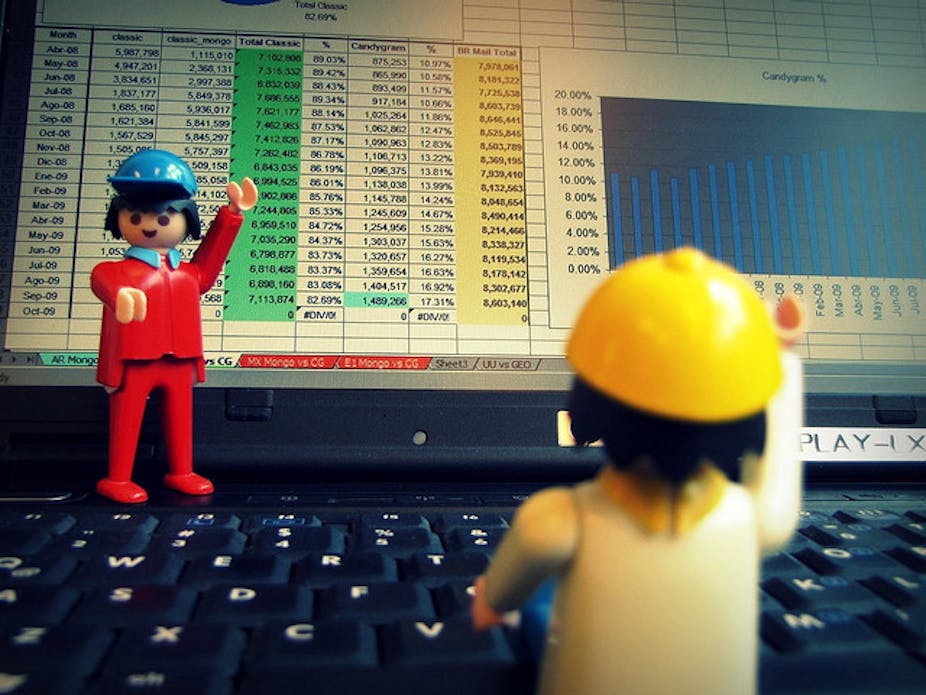Media commentators, regulators, and the judiciary continually express their concerns over the independence of auditors and other accounting professionals when they prepare expert reports.
Typically, this concern peaks in the wake of corporate scandals and collapses, and is not confined only to auditors: witness the role of the credit rating agencies in the global financial crisis and, also, the role of directors in many of the company crashes that occur.
Are such allegations of bias justified? Is it possible for a professional ever to be truly independent in a professional services setting?
Testing independence
In a recently completed study, we investigated the effects of unconscious bias on professional judgment in a setting where professional (and legal) standards and rules mandate independent and unbiased opinions.
Using an experiment, we examined a specific form of bias, referred to as “attachment bias”.
Psychology research shows that this bias is unconscious. In exercising their judgment to make to a decision, individuals unconsciously reach conclusions to favour their own interest (or those of their relationships), while maintaining a belief in their own objectivity.
This means that the bias is created by the attachment to one’s “self” and to other people in the relationship.
Individuals are not knowingly corrupt or unethical. They are simply less objective than they believe themselves to be.
In our experiment, an independent accounting expert calculates the amount of loss arising from a contract dispute.
There are two parties to the dispute, and each party is entitled to retain their own expert to provide valuation evidence. However, in providing this professional opinion, the professional accountant is bound by a code of conduct mandating independence.
Our results show that regardless of this mandate, the judgment is biased towards the interests of the client retainer.
The loss calculated by the plaintiff’s expert witnesses are consistently greater than those of the defendant’s expert witnesses.
Expert witnesses
The issue of professional independence has been appreciated for a long time. However, there has been little research on factors that are likely to affect the independence of expert witnesses.
Expert witnesses are an exception to the tradition that witnesses attest to facts and personal knowledge only.
Expert witnesses must possess appropriate specialised qualifications or experience relevant to the opinion they provide.
Therefore, they are able to assist the court in providing their expert, unbiased opinion on specific matters in dispute.
Forensic accountants, providing expert opinion on commercial valuation, are a common manifestation of the court’s need for independent opinion.
In our experiment, we used a case based on a real dispute between two parties over the alleged economic loss incurred through the failure of refrigeration equipment in a dairy business.
The defendant supplier of the equipment does not deny liability but disputes the amount of loss claimed.
Our experiment participants were graduate forensic accounting students, most with professional accounting experience, who had been trained over a 12-week period in the regulations governing expert witness and accountants’ independence.
They were randomly assigned as forensic accounting experts to either the plaintiff or the defendant, and required to calculate the economic loss on the basis of identical facts.
A key part of our research design is that on completion of their reports, participants had to present their reports in a moot court. Practising barristers, one acting for the plaintiff and another acting for the defendant, examine and cross-examine the participants about their expert reports.
This moot court enhances the external validity of the expert witness exercise. Consequently, in preparing their report, there is a pervading tension brought about through the anticipation of appearing in “court” as an expert witness to defend the quantification of the economic loss and the underlying basis of the quantification.
The participants know they must act independently and know that they will be examined in court on this issue.
This cross-examination process creates the strong de-biasing effect of accountability, as participants are made accountable for, and must justify, their judgments of economic loss. It adds to the experimental realism and militates against finding bias.
We found that the average plaintiff loss across repeated iterations of the experiment to be $4.26 million, while the equivalent defendant loss is $2.75 million. The plaintiff’s experts are systematically estimating higher losses.
Idealistic impartiality
Our experiment shows that attachment bias exists in our controlled setting, even in the absence of any economic attachment to a client, and in the presence of only a hypothetical relationship to a client (plaintiff or defendant).
We expect the effect of attachments to be much greater in the real world, where professionals are paid real money by clients with whom they are in a real relationship.
Objectivity is one of the key ethical principles of the profession, and one presumed of an accountant expressing an opinion on a professional issue.
It requires that professional judgment not be compromised because of bias, conflict of interest, or the undue influence of others. Absence of bias is a noble ideal, but there is considerable evidence that it is no more than that.
Professional service providers will naturally have economic, financial, and human relationships with their clients, creating an attachment bias.
Costly regulation of independence has focused on addressing the outward form of the relationships, but fails to acknowledge that this bias is arguably an inevitable component of the human psyche and may not be able to be addressed.
Rather it must be recognised and taken into account when considering a professional opinion.

